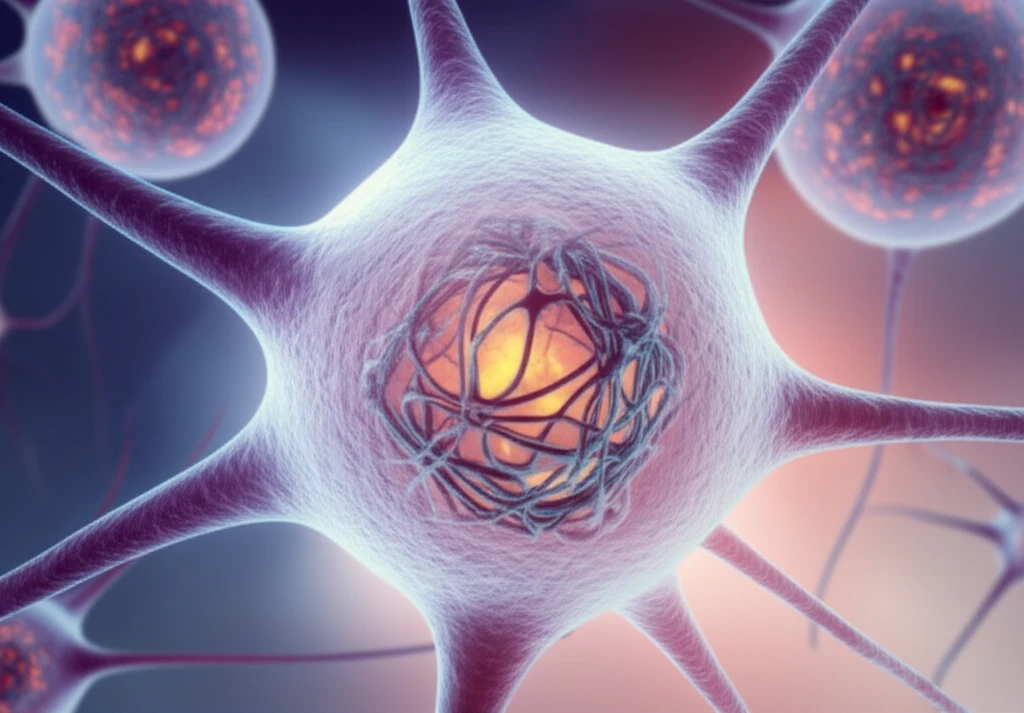
Unlocking Parkinson's: How Understanding Alpha-Synuclein Could Lead to a Cure
"A deep dive into the toxic protein at the heart of Parkinson's disease, and how targeting it could revolutionize treatment."
Parkinson's disease (PD) is a progressive neurodegenerative disorder affecting millions worldwide. Characterized by tremors, rigidity, and slow movement, PD significantly impacts the quality of life for those affected. While the exact cause remains elusive, a key player in PD pathology has emerged: alpha-synuclein.
Alpha-synuclein is a protein found in high concentrations in the brain, where it plays a crucial role in neuronal communication. However, in PD, this protein misfolds and aggregates, forming clumps known as Lewy bodies. These Lewy bodies disrupt normal brain function and are a hallmark of the disease.
Recent research has focused on understanding how alpha-synuclein becomes toxic and how we can prevent or reverse this process. This article explores the latest findings on alpha-synuclein's role in PD, examining its impact on cellular processes and the potential for novel therapeutic interventions.
Alpha-Synuclein: From Normal Function to Toxic Aggregation

In its healthy state, alpha-synuclein is believed to aid in synaptic vesicle function, which is essential for neurotransmitter release. This process allows neurons to communicate effectively. However, several factors can cause alpha-synuclein to misfold and aggregate. These include:
- Genetic Mutations: Specific mutations in the SNCA gene, which provides instructions for making alpha-synuclein, are linked to early-onset PD. These mutations can make the protein more prone to aggregation.
- Oxidative Stress: An imbalance between the production of free radicals and the body's ability to neutralize them can damage proteins, including alpha-synuclein, promoting misfolding.
- Impaired Protein Degradation: Cells have natural mechanisms for clearing out misfolded proteins, such as the ubiquitin-proteasome system and autophagy. When these systems fail, alpha-synuclein can accumulate and aggregate.
The Future of Parkinson's Research: Targeting Alpha-Synuclein
While Parkinson's disease remains a complex challenge, the growing understanding of alpha-synuclein's role offers hope for new and effective therapies. By targeting the mechanisms that cause alpha-synuclein to misfold and aggregate, scientists aim to develop treatments that can slow down, halt, or even reverse the progression of this devastating disease.
